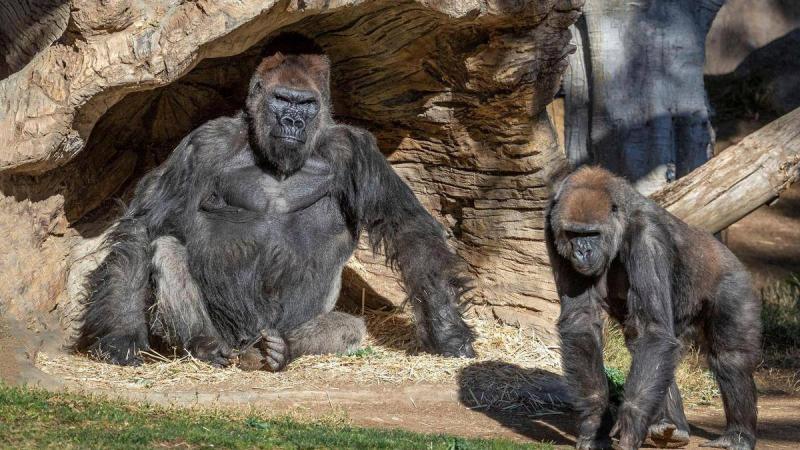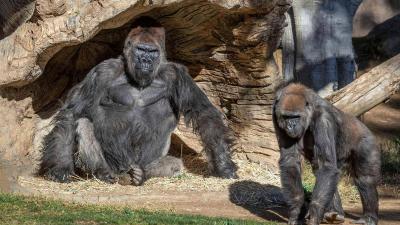Several Western gorillas at the San Diego Safari Park in the United States have tested positive for the novel coronavirus.
These infections are believed to be the first known cases of coronavirus among gorillas in the United States, and possibly in the world. Lisa Peterson, the park's executive director, told the Associated Press that eight gorillas living together at San Diego Zoo are suspected of having the virus, and many of the gorillas are suffering from severe coughing.
According to the agency, it appears that the coronavirus infection reached the gorillas from a member of the wildlife care team at the San Diego Zoo, who also tested positive for the virus but did not exhibit any symptoms and wore a protective mask at all times while working near the infected gorillas.
It is noteworthy that the San Diego Zoo has been closed to visitors since December 6 as part of California's efforts to curb the outbreak of the novel coronavirus.
Peterson stated that veterinarians are closely monitoring the coronavirus-infected gorillas at San Diego Zoo, and they will remain in their home at the park, which is located north of San Diego.
Additionally, Peterson mentioned that the gorillas are currently receiving vitamins, fluids, and food, but there is no specific treatment for the virus available for the gorillas, noting that "aside from some congestion and coughing, the gorillas' condition can be described as good."
It is significant to point out that while other wild animals like minks and tigers have previously contracted coronavirus, this is the first known case of transmission to great apes, and it is unclear whether they will have any severe reactions to the infection.
Moreover, wildlife experts have expressed their concerns about gorillas contracting coronavirus, as they are an endangered species that shares 98.4% of their DNA with humans and are inherently social animals.
It is also worth mentioning that the population of coronavirus-infected Western gorillas at San Diego Zoo has declined by over 60% over the last two decades due to poaching and disease, according to the World Wildlife Fund.
In this context, San Diego Zoo officials indicated that the confirmation of gorillas being susceptible to coronavirus contributes to understanding how the pandemic affects these species in their native habitats if they come into contact with humans and human materials.
The San Diego Safari Park plans to share what it learns with health officials, conservation advocates, and scientists to develop measures to protect gorillas living in African forests.




